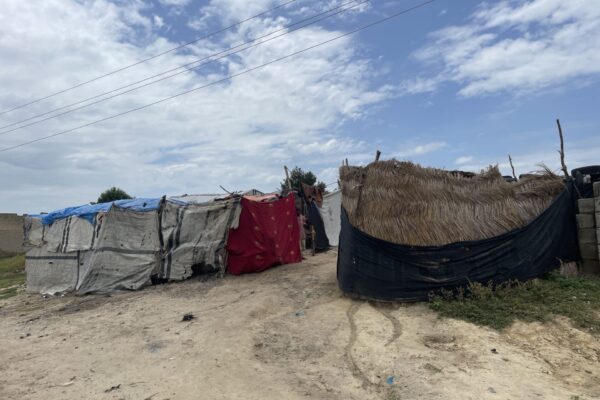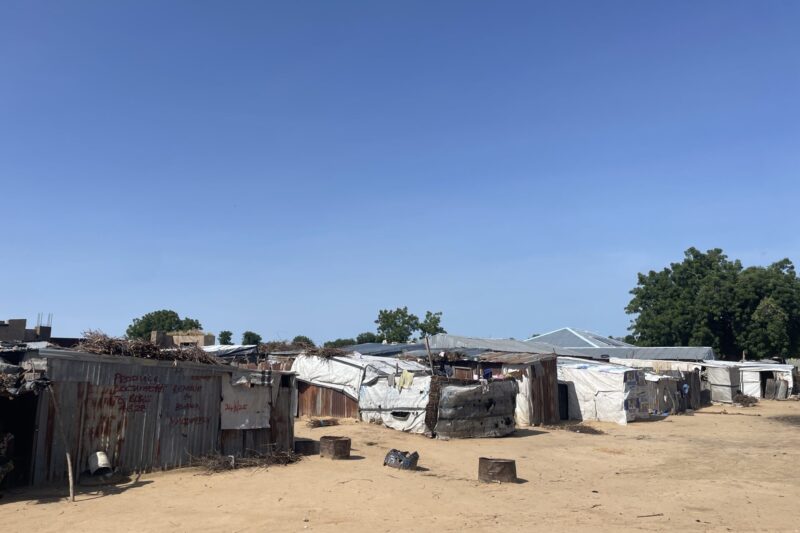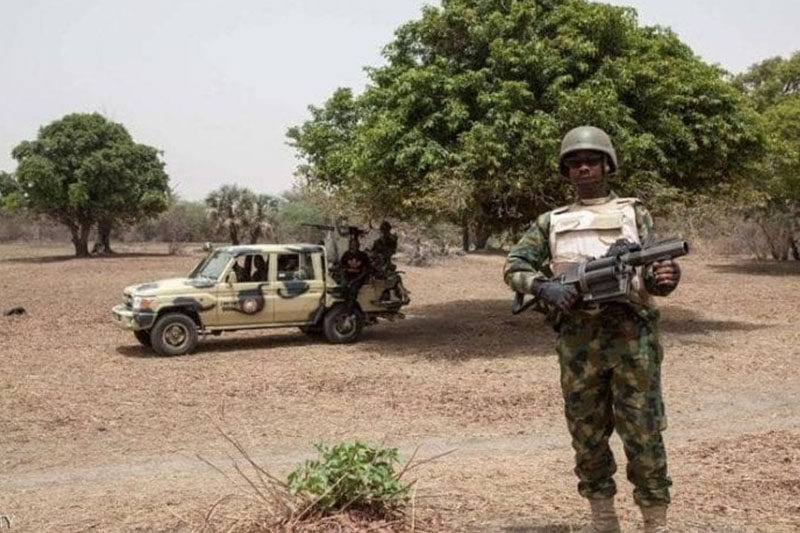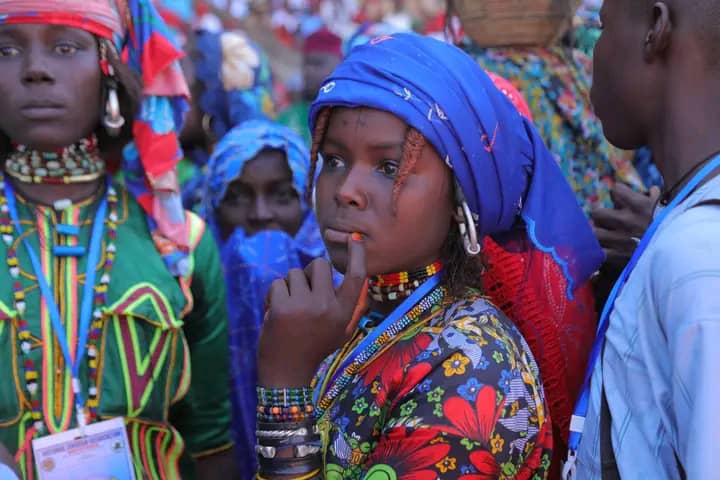A Camp in Crisis
In the crowded EYN IDP Camp located at Jerusalem, Wulari area of Maiduguri, Borno State, Northeast Nigeria despair has quietly replaced the hope that once sustained many displaced families. For hundreds of residents, life has become a daily struggle for survival.
“We are in agony,” says Barka Musa Amuda, the camp’s secretary. “Before, when the government and humanitarian organizations provided us with support, life was easier. But now, everything has stopped. Everyone is on their own.”
He explains that even farming a major source of livelihood for many IDPs has failed to meet expectations this year. “A lot of farmers took loans to improve their farming activities, but now they can’t refund them. It has made things worse,” he adds.
According to the United Nations Population Fund (UNFPA) Nigeria Situation Report for January 2025, nearly 8 million people in Nigeria are in need of humanitarian assistance including 1.95 million women of reproductive age in conflict-affected regions. These harsh conditions continue to heighten vulnerability to unwanted pregnancies and unsafe abortions among women and girls displaced by the crisis.
The Harsh Reality for Young Girls
As the hardship deepens, young girls have found themselves paying the highest price. Many have been pushed into prostitution as a means of survival.
“Parents can no longer cater for their children’s needs,” Barka says. “Many girls have turned to prostitution just to feed their families. Some don’t even sleep in the camp anymore.”
For the camp leadership, the situation is becoming harder to manage. “We sat as leaders to discuss what can be done to stop this,” he explains. “But how can we draw the line when these girls have no other means of livelihood? We, their parents, are struggling too.”
Most of these girls are not without education. “Some have completed secondary school, others have diplomas, and a few even hold degrees but none have stable jobs,” Barka says. “That is what’s driving this.”
Unwanted Pregnancies and Unsafe Abortions
The situation has also led to an alarming rise in unwanted pregnancies and unsafe abortions among the young women in the camp.
“I have personally seen about fifteen girls who have given birth or had abortions,” Barka reveals. “We gather both the girls and their parents separately and advise them on the dangers of what they’re doing.”
Despite their efforts, the camp leaders feel helpless. “We want the government to intervene and provide these girls with skill acquisition training,” he pleads. “Before, we never saw this happening in our camp, but now it’s everywhere. They can’t just sit and watch themselves and their families starve.”
A Guttmacher Institute factsheet notes that around 6.8 million pregnancies occur in the country every year in Nigeria, with about 10 percent mistimed or unwanted, and 11 percent ending in induced abortion. For many displaced women and girls, the lack of healthcare and livelihood opportunities makes safe reproductive choices almost impossible.
Mothers’ Pain and Struggle
For Saratu Dauda, a mother in the same camp, the situation has become unbearable.
“Our children no longer go to school; they just stay at home,” she says. “Even when we go to the forest to search for food, we come back with nothing.”
She shares how the lack of basic needs has forced many young girls into dangerous paths. “Some girls can’t even afford sanitary pads or clothes,” she says softly. “They follow men to get what they need. For the girls, it’s prostitution; for the boys, it’s stealing. We really need help.”
Stakeholders Raise Alarm
The growing desperation in IDP camps recently drew attention at a two-day stakeholders’ dialogue held on November 1st and 2nd, 2025, in Maiduguri. The event was organized by the Grassroots Researchers Association (GRA) with support from We Are Not Weapons of War (WWoW).
The dialogue brought together Borno traditional rulers, lawyers, government officials, and over 500 survivors of conflict-related sexual violence to discuss the rising cases of child pregnancy and unsafe abortions in IDP camps.
Participants expressed grave concern over how minors and young girls, trapped by hunger and lack of opportunities, are quietly engaging in survival sex and unsafe abortions.
A September 2025 report by the Independent Newspaper Nigeria reveals that unsafe abortions account for about 10–14 percent of all pregnancy-related deaths in the country, a tragic reflection of how desperation and lack of access to healthcare continue to cost young women their lives.

Breaking the Silence
Amid the difficult conversations, there were glimmers of hope. The GRA shared success stories from its awareness campaigns, which have helped survivors break the stigma surrounding sexual violence and gain better access to justice.
Still, the path to safety and dignity for many displaced women and girls remains long. For the residents of the EYN Camp, hunger and helplessness continue to fuel despair.
Rukaiya Ahmed Alibe









